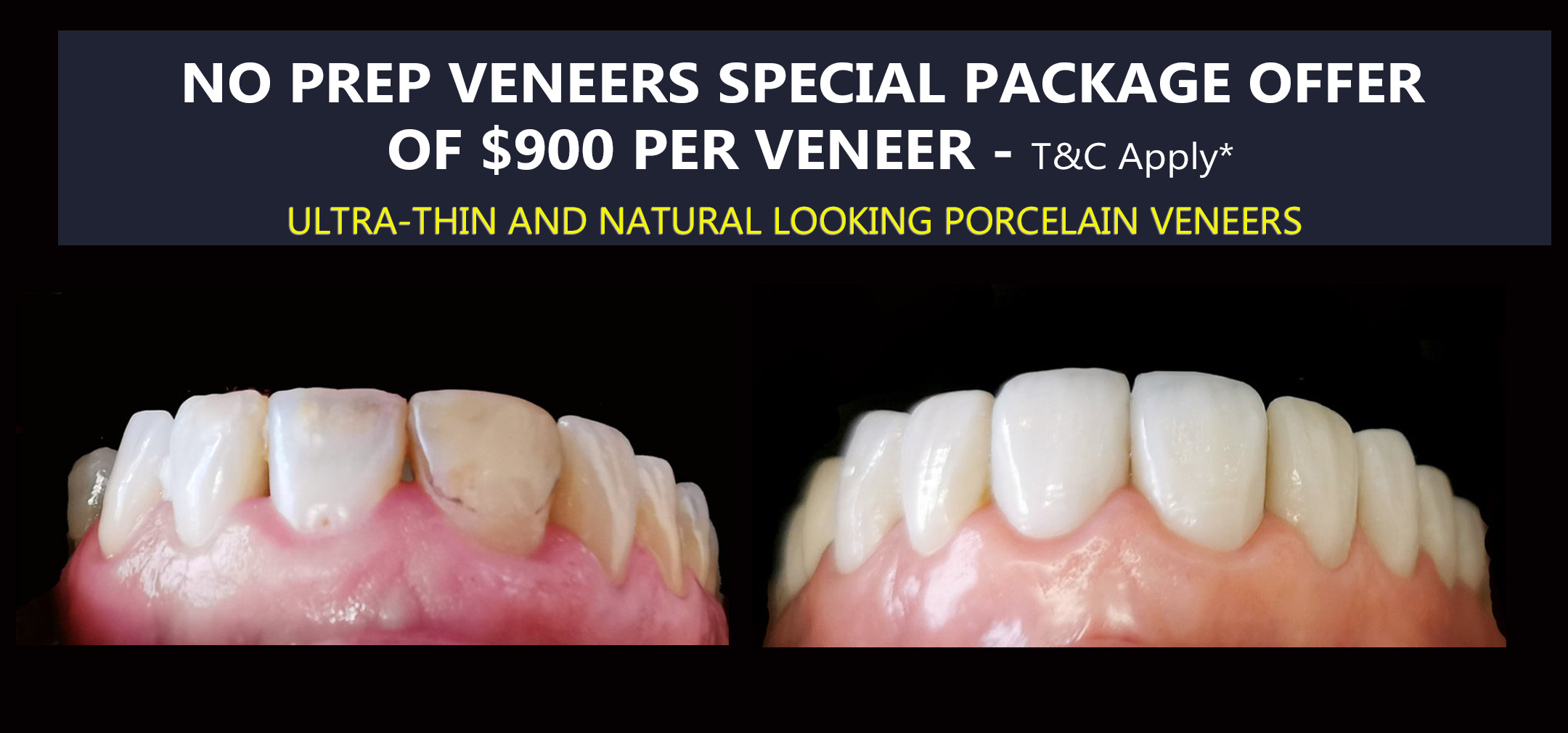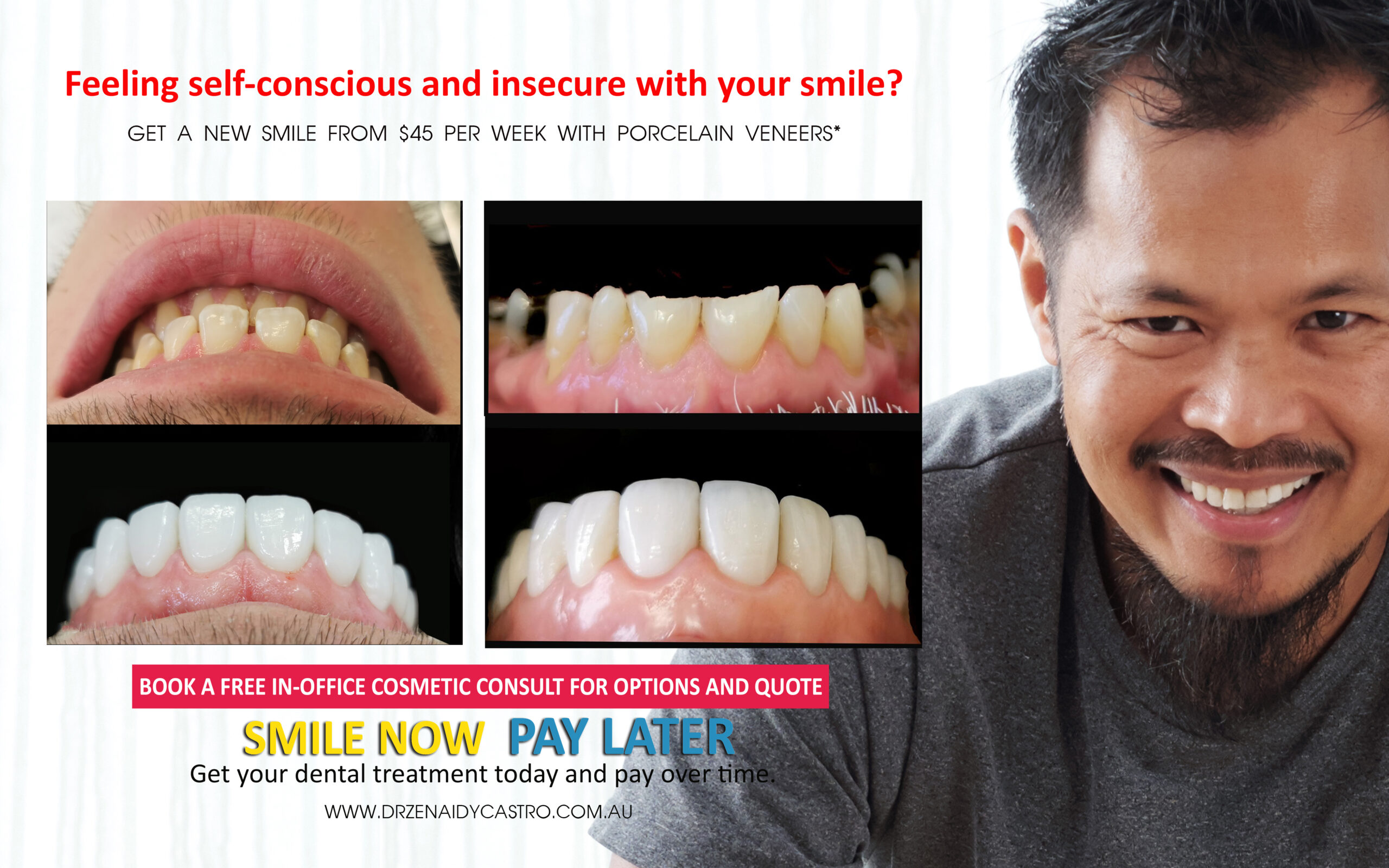
 Review the important terms and conditions that apply to this offer.
Review the important terms and conditions that apply to this offer.
✨Bad breath, medically known as halitosis, affects millions of people worldwide and can significantly impact your confidence and social interactions
✨Your mouth hosts hundreds of bacteria, and under certain conditions, they produce sulfur compounds that create unpleasant odors
✨A common misconception is that bad breath always originates in the mouth
✨While 85% of halitosis cases stem from oral causes, 15% are linked to health conditions, medications, or lifestyle factors often overlooked
✨Poor oral hygiene remains the leading cause, even in people who brush regularly but may miss thorough cleaning
✨Understanding the real causes of bad breath helps you tackle this embarrassing problem effectively
✨Simple daily habits can dramatically improve your breath and boost your confidence
✨Professional dental care in Melbourne CBD & Noble Park North provides lasting solutions for persistent halitosis
✨Most bad breath cases are completely treatable with the right approach and expert guidance
✨Learn practical tips and proven methods to keep your breath fresh all day long
???? Call Vogue Smiles Melbourne and Noble Park today for a comprehensive general and smile makeover treatment — offering competitive pricing, bundled porcelain veneer specials, interest-free dental plans, and Superannuation access assistance.
REQUEST AN ONLINE PERSONALIZED QUOTE ➤
REQUEST FOR A FREE TELECONSULTATION ➤
CAUSES OF BAD BREATH: THE COMPLETE GUIDE TO FRESH BREATH
Bad breath, medically known as halitosis, affects millions of people worldwide and can significantly impact your confidence and social interactions. If you’ve ever worried about your breath before a meeting, date, or close conversation, you’re not alone. The good news is that understanding the causes of bad breath is the first step toward solving this common problem permanently.
At our Melbourne CBD & Noble Park North dental practices, we see patients every day who are concerned about their breath. Many feel embarrassed or frustrated because they’ve tried countless remedies without lasting success. The truth is, effective treatment starts with identifying the root cause of your halitosis, not just masking the symptoms.
This comprehensive guide will help you understand exactly what causes bad breath, recognize the warning signs, and discover proven solutions that actually work. Whether you’re dealing with occasional morning breath or persistent halitosis that affects your daily life, we’ll show you practical steps to achieve the fresh, confident breath you deserve.
Understanding Bad Breath: More Than Just What You Ate
Many people think bad breath only comes from eating garlic or onions, but the causes of bad breath are much more complex. Your mouth is home to hundreds of different bacteria, and when certain conditions exist, these bacteria produce sulfur compounds that create unpleasant odors.
The most common misconception is that bad breath always originates in your mouth. While oral causes account for about 85% of halitosis cases, the remaining 15% can stem from other health conditions, medications, or lifestyle factors that many people never consider.
Understanding these different causes helps explain why some people struggle with persistent bad breath despite maintaining good oral hygiene. It also explains why certain treatments work for some people but not others – because they’re not addressing the specific cause of their halitosis.
PRIMARY CAUSES OF BAD BREATH YOU NEED TO KNOW
Poor Oral Hygiene: The Most Common Culprit
Poor oral hygiene remains the leading cause of bad breath, but it’s not always as obvious as you might think. Even people who brush their teeth regularly can develop halitosis if they’re not cleaning their mouth thoroughly enough.
When food particles remain trapped between your teeth and along your gum line, bacteria feed on these remnants and produce sulfur compounds. These compounds create the distinctive smell we associate with bad breath. The process happens continuously throughout the day, which is why your breath can worsen as hours pass.
Key areas that contribute to poor oral hygiene include:
- Inadequate brushing technique: Many people brush too quickly or miss important areas like the back teeth and gum line
- Skipping flossing: Food particles between teeth can only be removed with floss or water flossers
- Ignoring the tongue: Your tongue harbors bacteria that contribute significantly to bad breath
- Irregular dental cleanings: Professional cleanings remove tartar buildup that brushing alone cannot eliminate
Our Melbourne CBD & Noble Park North dental teams often discover that patients with persistent bad breath have small pockets of bacteria hiding in areas they can’t reach with regular brushing. Professional cleaning and improved home care techniques typically resolve these cases quickly.
Dry Mouth: The Hidden Cause of Halitosis
Dry mouth, medically called xerostomia, is one of the most overlooked causes of bad breath. Your saliva plays a crucial role in washing away food particles and neutralizing acids produced by bacteria. When saliva production decreases, bacteria multiply rapidly, leading to stronger, more persistent odors.
Several factors can cause dry mouth:
- Medications: Over 400 prescription and over-the-counter medications list dry mouth as a side effect
- Medical conditions: Diabetes, autoimmune disorders, and hormonal changes can reduce saliva production
- Mouth breathing: Sleeping with your mouth open or chronic nasal congestion leads to overnight dryness
- Age: Saliva production naturally decreases as we get older
- Lifestyle factors: Smoking, alcohol consumption, and caffeine can contribute to dry mouth
If you wake up with particularly bad breath or notice your mouth feels dry throughout the day, xerostomia might be contributing to your halitosis. The good news is that dry mouth responds well to treatment once identified as the underlying cause.
Gum Disease: A Serious Cause That Needs Professional Treatment
Gum disease, ranging from mild gingivitis to severe periodontitis, creates ideal conditions for the bacteria that cause bad breath. The infection and inflammation associated with gum disease produce particularly unpleasant odors that don’t respond to regular brushing or mouthwash.
Warning signs that gum disease might be causing your bad breath include:
- Bleeding gums: Especially during brushing or flossing
- Swollen or tender gums: Gums that appear red or feel sore to touch
- Receding gum line: Teeth that appear longer than before
- Persistent metallic taste: Often accompanied by bad breath
- Loose teeth: In advanced cases of gum disease
Gum disease requires professional treatment to resolve completely. At our Melbourne CBD & Noble Park North locations, we use advanced techniques to eliminate the bacterial infection and restore your gum health. Once your gums heal, patients typically notice immediate improvement in their breath quality.
Food and Dietary Causes of Bad Breath
While certain foods are obvious culprits, the relationship between diet and bad breath is more complex than most people realize. Understanding how different foods affect your breath can help you make informed choices about when and what to eat.
Common dietary causes of bad breath include:
- Sulfur-rich foods: Garlic, onions, and certain spices contain compounds that enter your bloodstream and are exhaled through your lungs
- Protein-heavy meals: Bacteria break down proteins into amino acids, some of which produce strong odors
- Sugary foods and drinks: Feed bacteria in your mouth, leading to increased acid production and odor
- Coffee and alcohol: Both can contribute to dry mouth and create lingering odors
- Crash diets or fasting: Can cause ketosis, which produces a distinctive breath odor
The key is understanding that some food-related bad breath is temporary and will resolve on its own, while dietary habits that promote bacterial growth can cause persistent halitosis. Our dental professionals in Melbourne CBD & Noble Park North can help you identify whether your diet is contributing to ongoing breath problems.
MEDICAL CONDITIONS THAT CAUSE BAD BREATH
Respiratory and Sinus Issues
Respiratory conditions and sinus problems can significantly contribute to halitosis, especially when they cause chronic mouth breathing or post-nasal drip. These conditions create an environment where bacteria thrive and produce strong odors.
Respiratory-related causes of bad breath include:
- Chronic sinusitis: Infected or inflamed sinuses can drain into your throat, carrying bacteria and creating odors
- Allergies: Chronic nasal congestion leads to mouth breathing and dry mouth
- Tonsillitis: Infected tonsils harbor bacteria and can develop tonsil stones that smell terrible
- Sleep apnea: Often causes mouth breathing during sleep, leading to dry mouth and morning bad breath
If you have persistent nasal congestion, frequent sinus infections, or notice your bad breath is worse in the morning, respiratory issues might be the underlying cause. Treating these conditions often resolves the associated halitosis.
Digestive System Disorders
While less common than oral causes, certain digestive conditions can contribute to bad breath. These conditions affect how your body processes food and can create odors that are expelled through your breath.
Digestive causes of bad breath include:
- GERD (acid reflux): Stomach acid can back up into your esophagus and mouth, creating sour odors
- H. pylori infection: This bacterial infection in the stomach can contribute to halitosis
- Intestinal blockages: Can cause breath that smells like feces in severe cases
- Liver disease: Can produce a sweet, musty breath odor
If you have digestive symptoms along with persistent bad breath, it’s important to address both issues. Our Melbourne CBD & Noble Park North dental professionals can help determine whether your halitosis has an oral cause or if you should consult with a medical doctor about digestive issues.
EFFECTIVE SOLUTIONS FOR BAD BREATH
Daily Oral Hygiene: Your First Line of Defense
Proper daily oral hygiene is the most effective way to prevent and treat most causes of bad breath. However, effective oral hygiene goes beyond just brushing your teeth twice a day.
Essential daily habits for fresh breath include:
- Brush for two full minutes: Use fluoride toothpaste and brush all surfaces of your teeth, including along the gum line
- Clean your tongue: Use a tongue scraper or brush your tongue to remove bacteria and debris
- Floss daily: Remove food particles and plaque between teeth where your toothbrush can’t reach
- Use an antimicrobial mouthwash: Choose a mouthwash that kills bacteria rather than just masking odors
- Stay hydrated: Drink plenty of water throughout the day to maintain saliva production
The key is consistency and thoroughness. Many patients at our Melbourne CBD & Noble Park North practices are surprised to learn they’ve been missing important areas during their daily routine. We provide personalized instruction to ensure you’re getting the most from your home care efforts.
Professional Dental Treatments
When home care isn’t enough to resolve bad breath, professional dental treatments can address underlying issues that contribute to halitosis. These treatments target the root causes rather than just masking symptoms.
Professional treatments for bad breath include:
- Deep cleaning (scaling and root planing): Removes tartar buildup below the gum line where bacteria hide
- Gum disease treatment: Eliminates bacterial infections that cause persistent odors
- Dry mouth therapy: Includes prescription medications and special products to increase saliva production
- Custom oral appliances: For patients with sleep apnea or chronic mouth breathing
Our experienced dental professionals in Melbourne CBD & Noble Park North use advanced diagnostic tools to identify the specific causes of your bad breath. This targeted approach ensures you receive the most effective treatment for your individual situation.
Lifestyle Changes That Make a Difference
Simple lifestyle modifications can significantly improve your breath quality and reduce the likelihood of developing halitosis. These changes work alongside good oral hygiene to create lasting results.
Effective lifestyle changes include:
- Quit smoking: Smoking contributes to dry mouth, gum disease, and persistent odors
- Limit alcohol consumption: Alcohol can dry out your mouth and contribute to bacterial growth
- Eat regular, balanced meals: Skipping meals can cause ketosis and distinctive breath odors
- Chew sugar-free gum: Stimulates saliva production and helps clean your mouth between brushings
- Manage stress: Chronic stress can affect saliva production and oral health
These lifestyle changes not only improve your breath but also contribute to better overall oral and general health. Our Melbourne CBD & Noble Park North dental teams provide comprehensive guidance to help you implement these changes successfully.
WHEN TO SEEK PROFESSIONAL HELP
While occasional bad breath is normal, persistent halitosis that doesn’t respond to improved oral hygiene may indicate underlying health issues that require professional attention. Knowing when to seek help can prevent minor problems from becoming major concerns.
You should consult a dental professional if you experience:
- Persistent bad breath: Despite good oral hygiene and lifestyle changes
- Bleeding or swollen gums: Signs of gum disease that requires treatment
- Chronic dry mouth: Especially if accompanied by difficulty swallowing or speaking
- Unusual taste in your mouth: Metallic, sour, or bitter tastes that persist
- Pain or sensitivity: In your teeth, gums, or jaw area
At our Melbourne CBD & Noble Park North dental practices, we understand that bad breath can be embarrassing to discuss. Our compassionate team creates a comfortable environment where you can openly discuss your concerns and receive effective treatment without judgment.
The Importance of Regular Dental Checkups
Regular dental checkups play a crucial role in preventing and treating the causes of bad breath. During these visits, your dental professional can identify early signs of problems that might not be obvious to you yet.
Benefits of regular dental visits include:
- Early detection: Identifying gum disease, decay, or other issues before they cause bad breath
- Professional cleaning: Removing tartar and bacteria that home care can’t eliminate
- Personalized advice: Tailored recommendations based on your specific oral health needs
- Monitoring progress: Tracking improvements in your oral health and breath quality over time
We recommend scheduling dental checkups every six months, though some patients with a history of gum disease or persistent halitosis may benefit from more frequent visits. Our Melbourne CBD & Noble Park North locations make it convenient to maintain regular dental care.
PREVENTING BAD BREATH: LONG-TERM SUCCESS STRATEGIES
Prevention is always better than treatment when it comes to bad breath. By understanding the causes of bad breath and implementing consistent preventive measures, you can maintain fresh breath and avoid the embarrassment and social discomfort associated with halitosis.
Long-term prevention strategies include:
- Consistent oral hygiene routine: Make thorough cleaning a non-negotiable part of your daily routine
- Regular professional care: Don’t skip dental appointments, even when you feel fine
- Healthy lifestyle choices: Avoid smoking, limit alcohol, and maintain good nutrition
- Address medical issues promptly: Treat sinus infections, allergies, and other health conditions that contribute to bad breath
- Stay informed: Learn about new products and techniques that can improve your oral health
Remember that achieving and maintaining fresh breath is an ongoing process, not a one-time fix. Our Melbourne CBD & Noble Park North dental professionals are committed to supporting you throughout this journey with expert guidance and personalized care.
FREQUENTLY ASKED QUESTIONS ABOUT BAD BREATH
What are the most common causes of bad breath?
The most common causes of bad breath include poor oral hygiene, dry mouth, gum disease, certain foods, and bacterial buildup on the tongue. About 85% of bad breath cases originate in the mouth, while 15% are caused by medical conditions or medications.
How can I tell if I have bad breath?
You can check for bad breath by licking your wrist, letting it dry, and smelling it, or by asking a trusted friend or family member. Other signs include a bad taste in your mouth, dry mouth, or white coating on your tongue.
Does mouthwash cure bad breath permanently?
Mouthwash can temporarily mask bad breath odors, but it doesn’t cure the underlying causes of halitosis. Antimicrobial mouthwashes can help reduce bacteria, but addressing root causes like gum disease or poor oral hygiene is necessary for permanent results.
Can certain medications cause bad breath?
Yes, over 400 medications can cause dry mouth, which leads to bad breath. Common culprits include antihistamines, antidepressants, blood pressure medications, and pain relievers. If you suspect your medication is causing halitosis, consult your doctor about alternatives.
How often should I clean my tongue to prevent bad breath?
You should clean your tongue daily as part of your regular oral hygiene routine. Use a tongue scraper or brush your tongue gently with your toothbrush to remove bacteria and debris that contribute to bad breath.
What medical conditions can cause persistent bad breath?
Medical conditions that can cause bad breath include diabetes, liver disease, kidney disease, GERD, sinus infections, tonsillitis, and certain autoimmune disorders. If home care doesn’t improve your breath, consult a healthcare professional to rule out underlying conditions.
Is bad breath always a sign of poor oral hygiene?
No, bad breath can have many causes beyond poor oral hygiene. While inadequate cleaning is the most common cause, dry mouth, gum disease, medical conditions, medications, and dietary factors can all contribute to halitosis even in people with good oral hygiene.
Can drinking more water help with bad breath?
Yes, staying hydrated helps maintain saliva production, which naturally cleanses your mouth and neutralizes bacteria. Drinking water throughout the day can help prevent dry mouth, one of the major causes of bad breath.
How long does food-related bad breath last?
Food-related bad breath typically lasts 24-72 hours, depending on the food consumed. Garlic and onions can cause breath odors for up to three days because their compounds enter your bloodstream and are exhaled through your lungs.
When should I see a dentist about my bad breath?
You should see a dentist if bad breath persists despite good oral hygiene, if you have bleeding gums, chronic dry mouth, or if bad breath is accompanied by pain, swelling, or unusual tastes in your mouth.
Can stress cause bad breath?
Yes, stress can contribute to bad breath by reducing saliva production and affecting your immune system’s ability to fight oral bacteria. Stress can also lead to poor oral hygiene habits and increased consumption of coffee or alcohol, which worsen halitosis.
Do probiotics help with bad breath?
Some studies suggest that certain oral probiotics may help reduce bad breath by promoting beneficial bacteria in your mouth. However, more research is needed, and probiotics should complement, not replace, good oral hygiene and professional dental care.
TAKE ACTION FOR FRESHER BREATH TODAY
Understanding the causes of bad breath is the first step toward solving this common but embarrassing problem. Whether your halitosis stems from poor oral hygiene, dry mouth, gum disease, or underlying health conditions, effective solutions are available when you work with experienced dental professionals.
Don’t let bad breath continue to affect your confidence and social interactions. The dental teams at our Melbourne CBD & Noble Park North locations are ready to help you identify the root causes of your halitosis and develop a personalized treatment plan that delivers lasting results.
Remember, most cases of bad breath are completely treatable with the right approach. By combining proper oral hygiene, professional dental care, and appropriate lifestyle changes, you can achieve the fresh, confident breath you deserve. Take the first step today by scheduling a comprehensive evaluation with our caring dental professionals.
Your journey to fresher breath and renewed confidence starts with understanding what causes your specific case of halitosis. Contact our Melbourne CBD & Noble Park North dental practices today to schedule your consultation and discover how we can help you achieve lasting fresh breath naturally and effectively.
Say Goodbye to Bad Breath – Reclaim Fresh Confidence
✨ At Vogue Smiles Melbourne, we see your smile as a lifelong investment—and we’re here to make it healthy, confident, and truly unforgettable.
Whether you’re after a simple check-up or a complete smile makeover, our caring team in Melbourne CBD & Noble Park North is here to help. Don’t let bad breath hold you back from smiling, speaking, or socializing with confidence. At Vogue Smiles Melbourne and Noble Park, we offer expert diagnosis and tailored solutions to treat the root causes of halitosis—not just mask it. Whether it’s a hygiene issue or a sign of something deeper, we’ll help you breathe easy again. Call us today and take the first step toward lasting freshness!
Your Healthier Smile Starts Here – Book a Consultation
???? Call (03) 9629 7664 | 0413 014 122
REQUEST AN ONLINE PERSONALIZED QUOTE ➤
REQUEST FOR A FREE TELECONSULTATION ➤


Disclaimer:
The information on this website is for information purposes only. Is not a substitute for a proper professional care and advice. Each patient’s outcomes, risks, potential complications, and recovery differ. Any dental procedure, minor or major, carries risks, some minor and some serious. Before and after images seen on our Social Media and website pages are our actual patient and have been published/posted with our patients’ permission. All of our patients photos are subject to Copyrights protection. We are strong believers in responsible aesthetics. Every cosmetic, medical, or dental procedure comes with its own set of risks and benefits. Cosmetic Dentistry results will vary from patient to patient. Call our office and book for an actual in-office consultation for us to assess if you are a good candidate for a particular treatment. All of our Specials and packages posted on this site are subject to terms, conditions and availability. The exact fee for a particular cosmetic procedure will be determined after a preliminary assessment distinguishing your unique personal needs and the type of work needed. The prices mentioned on any of our website as well as any mentioned payment plan by a third party source, are just a guide and is subject to change. Call the third party financing providers or visit their website for more info. Please call the office on 9629-7664 for further queries or clarification.




